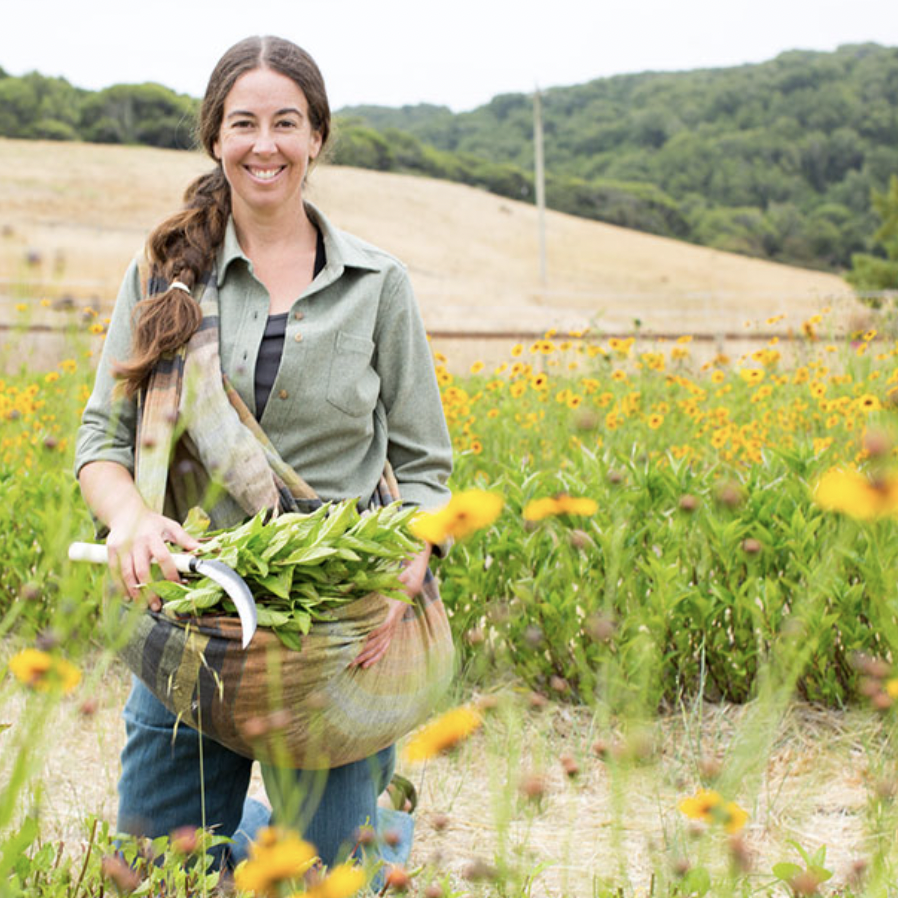Episode 10 - Regenerative Textile Economies
Imagine if our clothing was grown, designed, dyed, created, worn, passed on, and eventually composted in our own region, similar to farm-to-table food? This is the idea behind a fibershed, a regenerative, restorative, and resilient fashion system in one bioregion. In a fibershed, the way we make our clothing is carbon beneficial, regenerates soil, is healthy for our bodies, and restores livelihoods to rural communities.
Rebecca Burgess is an indigo farmer, weaver, dyer, and community organizer who spent a year wearing clothing that was grown, designed, dyed, and created in her bioregion. That experience helped inspire her to write Fibershed: Growing a Movement of Farmers, Fashion Activists, and Makers for a New Textile Economy, and to become the Executive Director of Fibershed, a grassroots organization that builds on her work to decentralize natural fiber and dye processes to strengthen economic opportunities. Rebecca has cultivated an internationally recognized network of farmers and artisans in the Northern California Fibershed to pilot this dream of a regenerative textile economy. Rebecca is working to create a fashion system that, from soil-to-skin, is good for people and for nature.
Rebecca joins Reseed host Alice Irene Whittaker to discuss how we topple outdated, extractive systems of the old economy, and in its place, rebuild the connections that knit together farmers, weavers, dyers, artisans, and wearers in resilient and regenerative communities. This conversation spans in-depth looks at specific fibres like cotton and wool, the role of policy in replacing fast fashion, dismantling white supremacy, and coming together by building a broad and holistic movement.
Show notes and transcript coming shortly.
